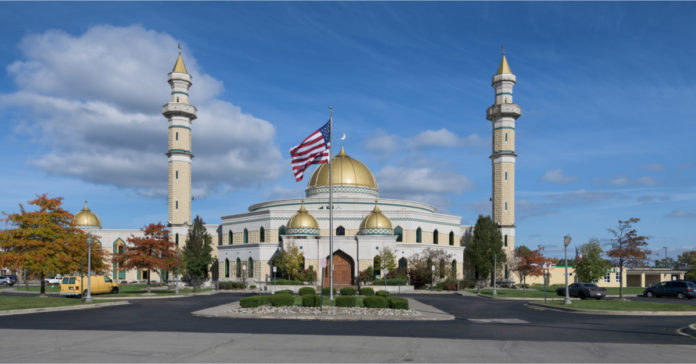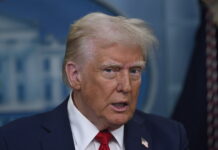The vast majority of U.S. mosques are likely to remain closed despite President Trump deeming a mosque an “essential” place that should reopen.
Trump said yesterday that he had instructed the Centers for Disease Control and Prevention to issue guidance for churches, synagogues, mosques and places where adherents of other faiths can gather, to open their doors again after the coronavirus shutdown.
“Ministers, pastors, rabbis, imams and other faith leaders will make sure that their congregations are safe as they gather and pray,” Trump said, describing them as “essential places that provide essential services.”
However, there are as yet no signs of major mosques opening for congregational prayers after Trump’s statement.
Ibrahim Hooper, communications director of the Council on American–Islamic Relations, said that the country’s Muslim schools and community leaders have already determined that mosques will not be open in the near future because of the health concerns brought on by the COVID-19 pandemic.
“That’s a determination for them to make, not for the president to make,” he said, according to VOA. “I don’t anticipate any mosques changing plans based on what was said by the guy who launched the Muslim ban,” Hooper said.
While some mosques, such as in Houston, will open with limits on attendance, most Muslim communities are turning to technology to celebrate Eid al-Fitr this weekend which marks the end of the month of Ramadan.
Subscribe to our newsletter and stay updated on the latest news and updates from around the Muslim world!
The Islamic Society of Boston’s two mosques will stream a virtual Eid sermon and communal takbir, followed by Eid car parades, Religion News reported.
The Fiqh Council of North America said in a statement that Muslims should perform Eid prayers in their homes alone or with their own families and encouraged mosques to broadcast their sermons.
They said: “It may not be possible to organize large Eid al Fitr prayers this year due to COVID 19. Therefore, families shall do Eid prayers at home. The Eid Khutbah is not required. People can listen to virtual Eid reflections from their local masjids. The Eid prayer can be offered any time after sunrise and before noon on Sunday, May 24, 2020…
“The Fiqh Council does not recommend holding of large Eid prayers at masjids or at open places such as parks, stadiums or soccer fields. There is a great danger of viral transmission via large social gatherings and the community must avert such dangers.”






















